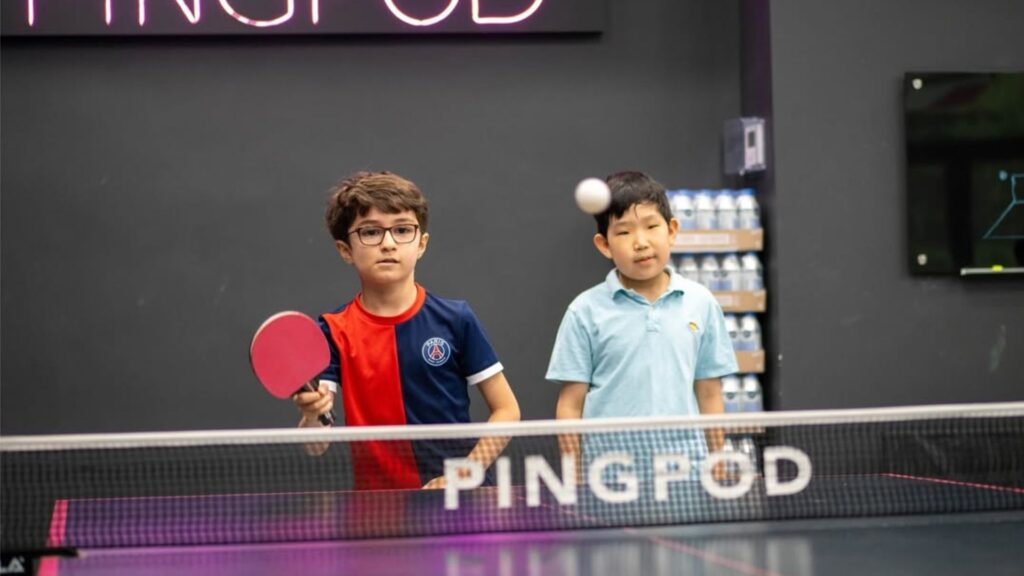Resilience—adapting, recovering, and thriving in the face of challenges—is a crucial life skill. It shapes how we handle stress, overcome setbacks, and, ultimately, how we age. One of the best ways to develop resilience in youth is through sports, and table tennis is an exceptional tool for building mental toughness, adaptability, and lifelong well-being.
From quick decision-making to handling losses gracefully, table tennis teaches lessons far beyond the table. Let’s explore how the game fosters resilience in young players and how those skills impact aging.
How Table Tennis Builds Resilience in Youth
1. Learning to Handle Wins and Losses
Table tennis is a fast-paced game where points are won and lost within seconds. Young players quickly learn that failure is part of the process. Instead of dwelling on a missed shot, they must reset, refocus, and move on to the next rally—building the resilience to handle setbacks in life.
Life Lesson: Like in table tennis, setbacks in school, friendships, and career paths are temporary. Resilient individuals know how to recover and keep moving forward.
2. Developing a Growth Mindset
Table tennis rewards those who consistently improve rather than those who rely on raw talent. Players must analyze mistakes, adjust strategies, and work hard to refine their skills. This mindset teaches kids that success is about effort, learning, and persistence.
Life Lesson: A growth mindset helps individuals embrace challenges, view failures as learning experiences, and continuously strive for self-improvement—skills that benefit them in all areas of life.
3. Enhancing Focus and Problem-Solving Skills
Every table tennis rally requires rapid decision-making—adjusting strokes, reading the opponent’s movements, and responding instantly. This mental agility translates to real-life problem-solving, teaching players how to stay calm under pressure and think critically.
Life Lesson: Resilient individuals are adaptable thinkers who can stay composed and make smart decisions in high-stress situations, from exams to job interviews.
4. Strengthening Emotional Control
Losing a close match or making an unforced error can be frustrating. Table tennis teaches young players to manage their emotions, stay composed, and avoid impulsive reactions. This emotional regulation is a key component of resilience.
Life Lesson: In life, emotions like frustration and disappointment are inevitable. Learning to control them and maintain composure is a crucial skill for personal and professional success.
5. Building Social Connections and Support Systems
Table tennis fosters a strong sense of community—whether through club training, tournaments, or friendly matches. Players develop communication skills, teamwork, and friendships that support their growth on and off the table.
Life Lesson: Having a strong support system enhances resilience. Relationships built through sports can provide encouragement and motivation during life’s challenges.
How Table Tennis Supports Healthy Aging
The resilience and skills built through table tennis benefit young players and contribute to a healthier, more fulfilling life as they age.
1. Mental Agility and Cognitive Longevity
Table tennis is known as a “brain sport” due to its impact on cognitive function. It sharpens memory, hand-eye coordination, and problem-solving skills, reducing the risk of cognitive decline and conditions like Alzheimer’s.
2. Physical Health and Longevity
Unlike high-impact sports, table tennis is gentle on the joints, making it an ideal lifelong activity. It promotes cardiovascular health, flexibility, and reflexes—all contributing to longevity.
3. Emotional Well-Being and Social Engagement
Playing table tennis keeps individuals engaged with their communities, reducing feelings of isolation that can come with aging. The game provides a sense of purpose and joy, crucial for maintaining emotional resilience later in life.
4. Adaptability to Life’s Challenges
Resilient older adults are better equipped to handle changes like retirement, physical limitations, or loss. The adaptability learned through table tennis—adjusting to different playing styles, conditions, and challenges—translates into a flexible mindset that helps people confidently navigate life transitions.
Final Thoughts: Table Tennis as a Tool for Lifelong Resilience
Table tennis is more than just a game—it’s a powerful tool for developing resilience in youth and maintaining mental, physical, and emotional health as we age. The ability to handle setbacks, stay focused, and adapt to challenges is just as valuable in life as in a competitive match.
By encouraging young players to take table tennis, we’re not just helping them develop athletic skills—we’re giving them the resilience they need to succeed in life and thrive at every stage, from childhood to old age.
So, whether you’re a young player learning the ropes or an older adult looking for a lifelong sport, table tennis is a game that keeps you sharp, strong, and resilient for years to come.

